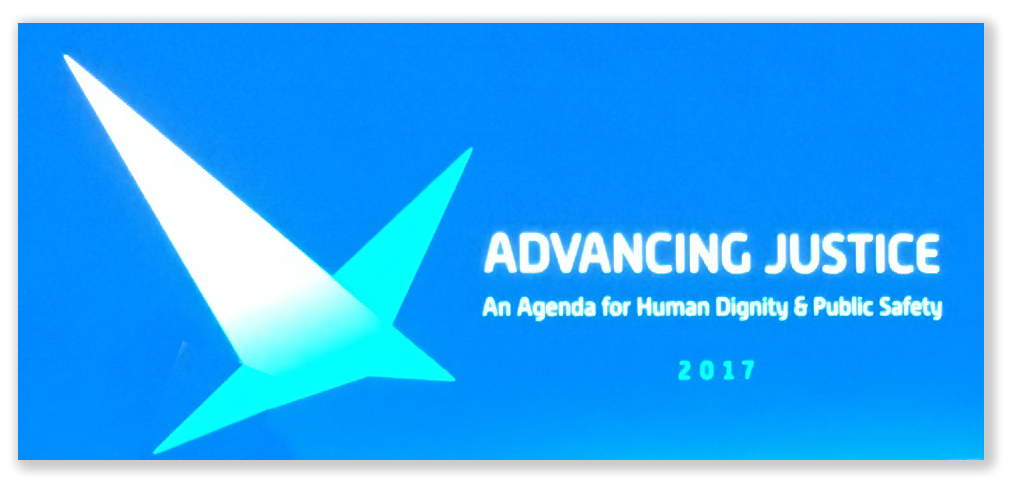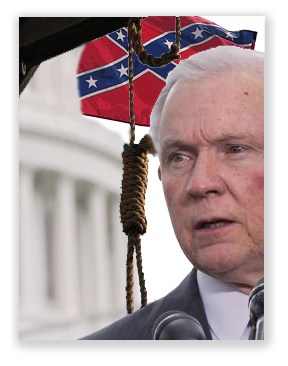We post news and comment on federal criminal justice issues, focused primarily on trial and post-conviction matters, legislative initiatives, and sentencing issues.
LISA DOES A ROAD TRIP
 We were in Washington, D.C., yesterday for the “Advancing Justice, An Agenda for Human Dignity & Public Safety,” a conference sponsored by the Charles Koch Institute.
We were in Washington, D.C., yesterday for the “Advancing Justice, An Agenda for Human Dignity & Public Safety,” a conference sponsored by the Charles Koch Institute.
“Advancing Justice” featured a thundering herd of prosecutors, public defenders, economists, doctors and law professors who focused on federal sentencing reform, over-criminalization, the opioid crisis, and effective rehabilitation.
Charles Koch, one of the often-denounced conservative Koch brothers (Koch Industries), is one of the staunchest sentencing reform supporters in the country. Through the Charles Koch Foundation, he has put his money where his mouth is, and bankrolled reforms that have or will have broad support from the right and the left.
SRCA SPONSORS MAKE THEIR CASE
The Sentence Reform and Corrections Act of 2107 would pass the Senate with 70 votes if it were voted on today, Senate Judiciary Committee Chairman Charles Grassley (R-Iowa) and Senator Mike Lee (R-Utah) told the Advancing Justice conference yesterday.
 The SRCA introduced in 2015 passed Sen. Grassley’s committee 15-5, and both he and Sen. Lee said it would have overwhelmingly passed the Senate had it been brought to a vote. Sen. Grassley said “election year pressures” were responsible for the bill stalling. Mark Holden, Koch Industries general counsel – who spearheaded Koch pressure in favor of the 2015 version of SRCA – was blunter about it: “Presidential politics killed the last Sentence Reform and Corrections Act,” he told one of the sessions focusing on the future of federal sentence reform.
The SRCA introduced in 2015 passed Sen. Grassley’s committee 15-5, and both he and Sen. Lee said it would have overwhelmingly passed the Senate had it been brought to a vote. Sen. Grassley said “election year pressures” were responsible for the bill stalling. Mark Holden, Koch Industries general counsel – who spearheaded Koch pressure in favor of the 2015 version of SRCA – was blunter about it: “Presidential politics killed the last Sentence Reform and Corrections Act,” he told one of the sessions focusing on the future of federal sentence reform.
Holden and Sen. Grassley separately noted that there is support within the Trump Administration for a reform bill. Holden noted that while it was well known that White House advisor Jared Kushner – President Trump’s son-in-law – supported sentencing reform because his father had done time for a white-collar offense – others in the Administration support it as well. Energy Secretary Rick Perry, Housing Secretary Ben Carson are strong supporters of the measure. Paul Ryan (R-Wisconsin), the Speaker of the House, is “very passionate” about sentence reform, Holden said.

Most of the attention has been focused on Attorney General Jefferson Beauregard Sessions III, who reportedly opposes sentencing reform. Holden suggested Sessions “not a real negative.” Sessions’ job, as he acknowledged at his confirmation hearing, is to enforce the laws, not make them. “He has his opinion,” Holden said. Sen. Lee told the conference that Sessions, with whom Lee served in the Senate until early this year, “is willing to work with us on sentencing reform” despite the fact Sessions voted against SRCA15 because he argued it went too far in reducing mandatory minimum sentences for some crimes.
Sen. Grassley said he had supported tougher sentencing in the 1980s and 90s, including mandatory minimum legislation, because it was the right solution to the rising crime rate at the time. But now, he admits “it makes sense to revisit” the laws. He said mandatory minimums are “too severe” and give prosecutors too much discretion in charging. Noting that 25% of DOJ budget is now spent on prisons, Sen. Grassley said the SRCA would “free up federal resources and give prisoners a chance to reform.”
Sen. Lee agreed. “We have finite resources to fight crime. The more spent on prisons, the less is left for enforcement, making communities safer… What we’re doing now on sentencing is not working,” said Sen. Lee, a former federal prosecutor.
He challenged those who oppose reform proposals to share their ideas. “We have to get to the politicians on this.” He said legislators are looking at how to properly identify low-level nonviolent drug offenders. Contrary to AG Sessions’ view, Sen. Lee said the act of drug trafficking “itself is not violent.”
 “The federal sentencing laws were not handed down from Mt. Sinai,” Sen. Lee said. The SRCA is “just a matter of common sense and sound public policy.” The problem, Lee and Holden suggested, was that SRCA supporters will run into the charge that they are “soft on crime.”
“The federal sentencing laws were not handed down from Mt. Sinai,” Sen. Lee said. The SRCA is “just a matter of common sense and sound public policy.” The problem, Lee and Holden suggested, was that SRCA supporters will run into the charge that they are “soft on crime.”
“We are going to have address the argument that ‘you are soft on crime’,” Sen. Lee said. “There are not the same market drivers in the federal sphere” as in state criminal justice reform. States cannot “kick the can down the road” like Congress can. At the state level, Sen. Lee said, the argument is to be “smart on crime, soft on taxpayers.” At the federal level, it “still works to be tough on crime. But every state that has done [sentence reform] had reduced crime rates and saved money.”
Axios, an online news site, reported that Lee said to a reporter afterwards that he wants a vote on SRCA before the end of the year, but with health care and tax reform in focus, the criminal justice reform bill has yet to be a priority.
The Crime Report, Federal Sentencing Reform Alive, Senators Insist (Oct. 27, 2017)
– Thomas L. Root

